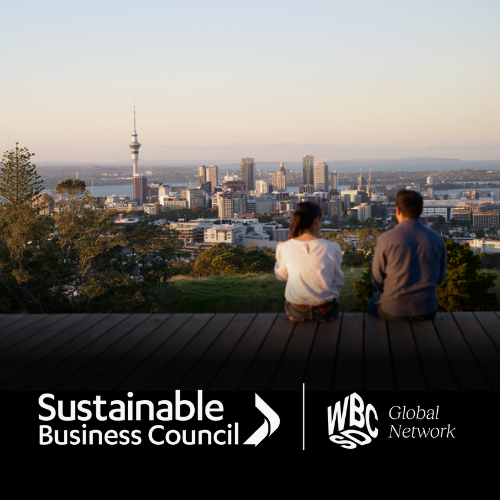Emerging trends in sustainable business
In the last few months at the Sustainable Business Council, we’ve kicked-off our weekly team meetings with a Māori whakatauki, or proverb, as a way of continuing our learning about Te Ao Māori.
A recent one struck me as particularly relevant to business right now: “Manaaki whenua, Manaaki tangata, Haere whakamua”, or “Care for the land, care for the people, Go forward.”
The phrase says if we care for our environment and communities, we will all advance and grow. And certainly, I am hearing more businesses say this too.
This month marks two years since I started at the council, and during that time I’ve seen a growing number of members come to understand that business cannot thrive in an environment or society that fails.
They believe the private sector has a leading role to play in advancing New Zealand’s environmental and social performance, alongside its economic performance. And with this belief, a number of trends and common goals are emerging.
Sustainable Development Goals
At last count, more than 25 Council member businesses were incorporating the UN-developed Sustainable Development Goals into their annual reporting, planning and operations.
The goals break each aspect of sustainability (social, environmental and economic) down into 17 easy to understand categories. They tackle issues that are important to New Zealanders, like poverty, health, water and climate change. They help businesses identify what areas of sustainable development they are directly contributing to, and how their initiatives relate to a larger vision of positive social change.
Businesses including Countdown, Sanford, Vodafone and DB Breweries are aligning their work to the goals.
3R Group is a Hawke’s Bay company with 22 employees that recycles or repurposes unwanted products such as paint and car seats, and has started using the goals in its annual reporting. 3R’s chief executive, Adele Rose, says the company likes them because they help align sustainable and strategic goals, make sustainability easy to understand, and are away for organisations from all different sectors, sizes and locations to work together on sustainable projects, using a common language.
Capital markets and investment
In the last two years, I’ve also seen more capital markets and investment firms promote sustainable business practices worldwide.
Last year, Larry Fink, who runs the world’s largest investment company, Blackrock, told CEOs in an open letter they would no longer invest in companies that aren’t contributing to society in a positive way.
Here at home, the Super Fund and Auckland City Council are starting to pull their investments out of oil companies.
This is a serious signal to businesses ignoring sustainability: your risk profile is rising.
This trend is being driven partly because companies increasingly understand how sustainability creates real bottom line value. Businesses adopting good environmental, social, and corporate governance practices often do better, because they see significantly higher market returns, a lower cost of capital, reduced operating costs and better talent recruitment rates.
Capital markets are also being driven by demand from customers, investors and directors. Increasingly, these groups are asking for certified evidence that a company is reducing its negative impacts. Organisations like the New Zealand Stock Exchange and Financial Markets Authority are writing refreshed guidelines promoting the benefits of non-financial disclosure.
Growing great leaders
I’ve also seen more business leaders talk publicly about and take visible action on environmental and social issues.
CEOs are starting to speak out regularly on important issues, hosting events and writing opinion pieces that show the business community is accelerating its work to reduce emissions, and better protect people and the environment. They recognise business leadership is required to fast-track action on issues like climate change, water, inclusion and poverty.
To foster great leaders, businesses are also identifying and training young professionals that will mobilise their peers inside and outside the company, and find innovative and low-impact solutions.
It is exciting to see companies taking more of a stand. They know it is about much more than good business – it’s about doing the right thing.
Abbie Reynolds, Executive Director, Sustainable Business Council
Contact: Renee Graham, Communications Manager
Phone: +64274559104
Email:

